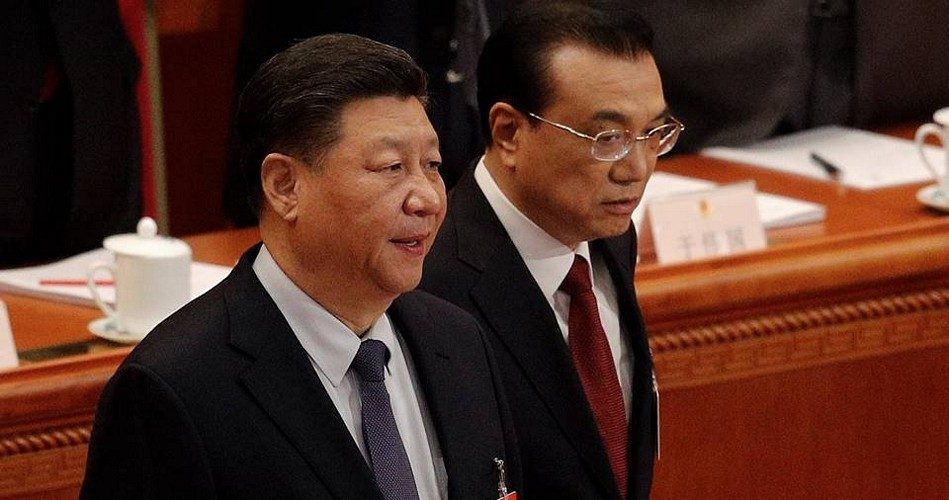
The Communist Party of China came to power 70 years ago this year — when the Soviet-backed forces led by Mao Tse-tung drove the non-communist Kuomintang government army led by Chiang Kai-shek out of the country to the island of Formosa (Taiwan). Mao’s rule led to between 34 and 64 million deaths by the time the U.S. Senate Subcommittee on Internal Security published its study The Human Cost of Communism in 1971.
After communist dictatorships fell like dominoes in eastern Europe in the late 1980s, many wondered if the two Communist giants of the Soviet Union and Red China would be next. The Soviet Union imploded in 1991, but the Communist Party in China crushed demonstrators in and around Tiananmen Square in 1989, snuffing out any hope of a better day there. Still, after the death of Mao, one of history’s bloodiest tyrants, the communist oligarchy opted to open up its economy to some extent, even allowing some limited freedoms in the areas of religion, for example.
But since President Xi Jinping (shown, left) took power in late 2012, the Communist Party has tightened its control over the people of China. Now, the official party information organs are issuing warnings against “erroneous thoughts.”
{modulepos inner_text_ad}
“Loyalty always comes first,” Xi told the Central Party School late last week. By loyalty, a word that Xi used several times in his speech, it is clear that he is calling for “loyalty” to the communist dictatorship, and himself in particular. The Chinese parliament, known as the National People’s Congress, has amended the Chinese constitution to remove term limits on the presidential office. Now, if he likes, Xi can hold the presidential office for the rest of his life. The National People’s Congress is not a true democratically-elected body, but is a group of hand-picked individuals who are strong party loyalists. They are more like the Reichstag under Adolph Hitler than a body that can exercise any check on Xi Jinping, even if they were so inclined — which they are not.
Just in case there is anyone in the country who does not understand that Xi and the Communist Party are in full control of the country, party officials have been stressing party loyalty, and they are now on the lookout for any fake loyalty. “Be on high alert to all kinds of erroneous thoughts, vague understandings, and bad phenomena in ideological areas,” they warned. “Keep your eyes open, see things early and move on them fast.”
Perhaps the Communist Party rulers are concerned about the slowing Chinese economy, which has accompanied resistance to the following of party orders at the local level, and increasing demands for true political reforms.
One thing the totalitarian government does not have to worry about is Twitter, as the government blocks it. (All those tweets by President Donald Trump are unavailable in the country.) The government, speaking through Xinhua, the official state news agency, said in a commentary on Sunday — delivered in English — that China rejected Western-style “democracy,” and would keep its present authoritarian model.
Xinhua said, “The country began to learn about democracy a century ago, but soon found Western politics did not work here. Decades of turmoil and civil war followed.”
What it should have added is that the reason that China did not adopt a governmental system with elections and civil liberties is that the Communist Party killed that effort. In 1911, Dr. Sun Yat-sen led a successful rebellion against the Manchu Dynasty, intending to establish a Western-style republic. Sun’s right-hand man, Chiang Kai-shek, eventually replaced Sun after his death in 1925, and soon found himself dealing with attempts by Communist subversives to overthrow the government and create a Soviet-style communist dictatorship.
By 1930, Chiang had unified China under what was certainly the most enlightened government in its history. China was moving steadily toward Chiang’s ultimate goal of a constitution, creating a republic with free elections. But after Japan invaded Manchuria, Chiang’s focus was diverted to fighting the foreign invaders. He was forced to fight a two-front war inside his own country — against the Japanese and against the communists determined to overthrow the Kuomintang Nationalist government.
After the United States entered the war in 1941, Chiang came under increasing pressure by pro-communist American “diplomats” in the country to bring Mao’s communists into his government. When the war was over, Japanese military equipment was turned over to Mao’s forces by the invading Soviets, while America cut off aid to the non-communist Chiang government.
The end came for China’s hope for a limited, constitutional republic in 1949 when the Nationalists were driven from the mainland to Formosa. Once in Formosa, Chiang set up a non-communist Republic of China on Taiwan. Back on the mainland, “Red China” became an enemy of the United States, even invading Korea in 1950 to help the North Korean communist government in the Korean War. And the people of China began to suffer under 70 years of brutal communist dictatorship.
Sadly, it appears there is no “light at the end of the tunnel” for the day when the Chinese people will be able to taste freedom, as Xi and his fellow communist dictators have made quite clear on the year of the 70th anniversary of that dictatorship.
Photo: AP Images



